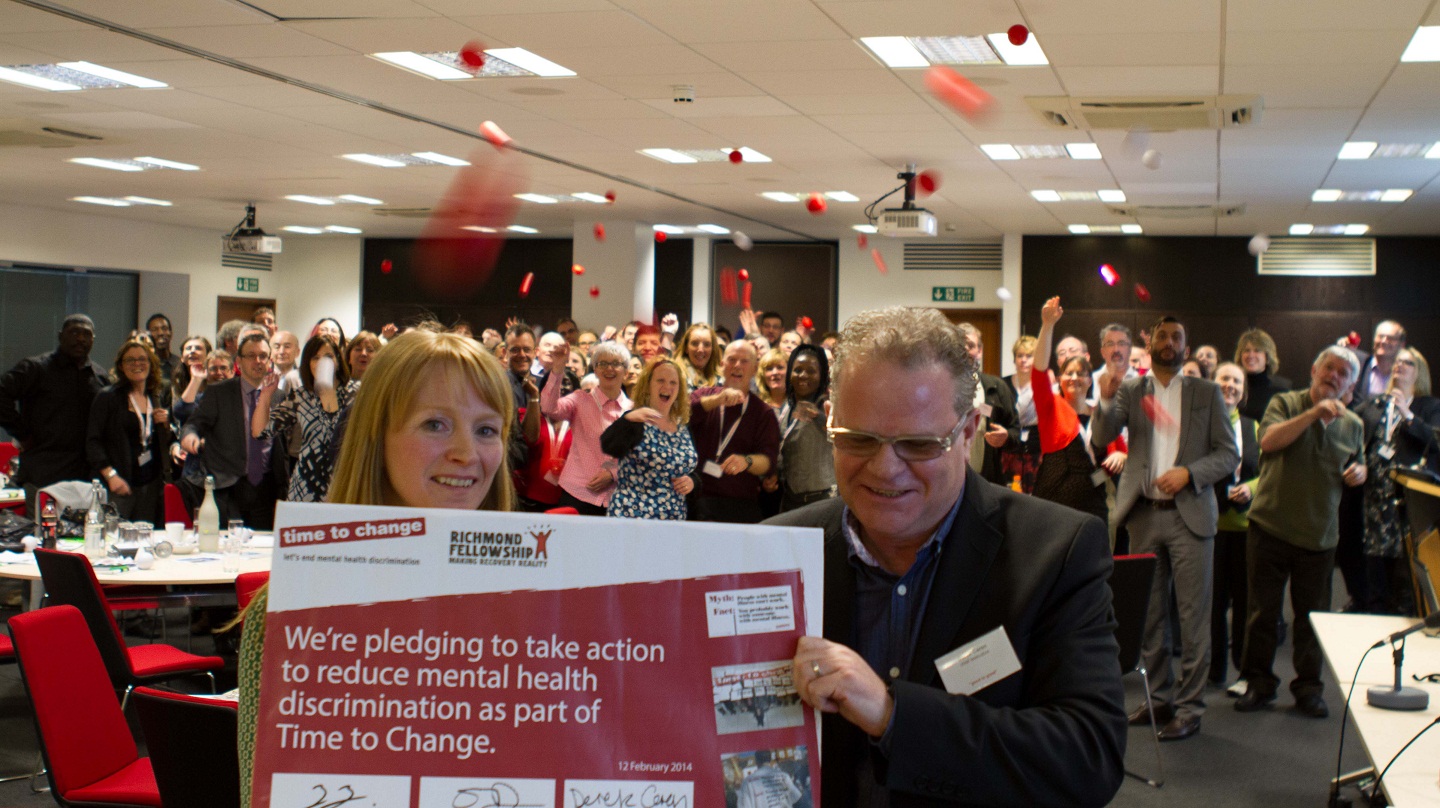A day in the life of a Recovery Work – Apply today
Right now, we are looking for someone like you to join our team in Northampton where we support people with learning disabilities, autism and mental health problems. Are you caring and compassionate? Looking for a role where you can make a real difference to people’s lives every day? Welcome to Richmond Fellowship as a Recovery Worker. In this blog post, we take you through the day in the life of a recovery worker.
A typical day at Richmond Fellowship? To be honest, there isn’t one. One of the best things about this job is the variety. When you are arriving for your shift you are never sure what is going to happen. One day you will be helping people develop the skills to live independently, the next you could be interacting with healthcare professionals developing their care plan or maybe you will gain further qualifications through Richmond Fellowship’s training scheme.
To start the day the team meets for a handover from the previous shift. This is an opportunity to talk about plans for the day, which person you will focus your time on and sharing out tasks. The handover paperwork is completed to make sure we don’t forget anything. We’re commissioned to provide these services and our commissioners have expectations. We must keep records making sure the building is a safe place to live and work. These tasks are built into the shift leaving plenty of time for getting out and about with the people we support. Then it is off to see if anyone needs a hand to get up, washed, dressed, and ready for the day.
Once breakfast is finished it is time to plan the day. Each person has a set of life goals and it is the job of a recovery worker to encourage them to work towards those goals. For example, someone may have a goal to find a relationship. We break down that goal into smaller, manageable chunks. To meet someone special they may need to join groups and activities. With that in mind, you would spend time together searching out groups of interest and building up their confidence to attend. It is easy to see how each day can contribute to achieving that long term goal.
This job is all about supporting people to do things their way. It would be easy to give people a list of local activities but that takes away from helping someone learn how to search and find activities and events that suit them and their interests. That can all take time and it must be done at a pace to suit the person or the journey to becoming more independent is interrupted. Bringing ideas and suggestions for the people who live at the service creates a real buzz when we find something new to try.
You don’t need to have loads of experience of recovery work or of learning disabilities, autism or mental ill health to be good at this job. Richmond Fellowship provides a lot of training to develop the technical knowledge but this job is all about building relationships with the people who live in the house and your colleagues. If you have the basic values of kindness, patience and compassion everything else can be learned.
There may be appointments to arrange and attend. There are often visits from other professionals who are involved in people’s lives such as care coordinators, nurses or psychiatrists. You will talk with them and the person you support to develop their care plan or take the next step on their recovery journey. There are families and friends to spend time with. You will need good communication skills and a positive attitude to meet all these people. This job is all about providing as much or as little support as needed to make sure that people are living the life they choose.
The end of the day tends to be focused on preparing for bed and encouraging good sleep. Sleep is an essential part of being well for everyone and developing healthy sleep routine is a great way to get the best out of the next day. After you leave you can do some shopping with the exclusive discounts for Richmond Fellowship employees or maybe cycle home on the bike provided by our cycle to work scheme.
It can be a demanding and full-on job. It requires a lot of energy to stay motivated and energetic even when people are lethargic and disengaged. You won’t be on your own. Richmond Fellowship is a team and there is a lot of support for this role including training, monthly supervision with your manager, and team meetings. There is a staff council so you know you’re views will be heard at the top. It is essential to make good use of all of these tools to keep your batteries charged and the ideas flowing.





 Richmond Fellowship has joined the growing number of organisations committing to end the stigma and discrimination against people with experience of mental health problems by signing a pledge with national campaign Time to Change.
Richmond Fellowship has joined the growing number of organisations committing to end the stigma and discrimination against people with experience of mental health problems by signing a pledge with national campaign Time to Change.









